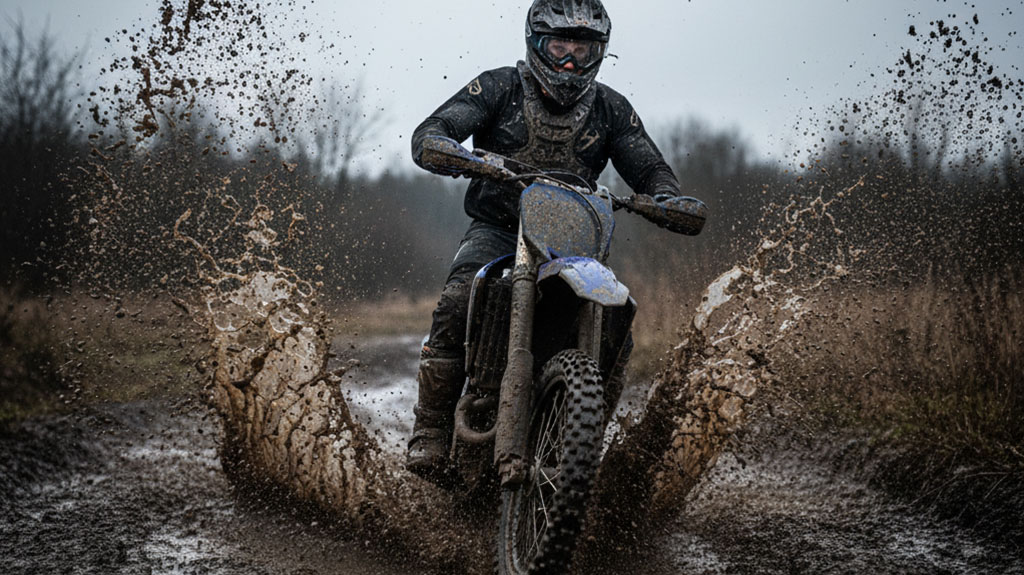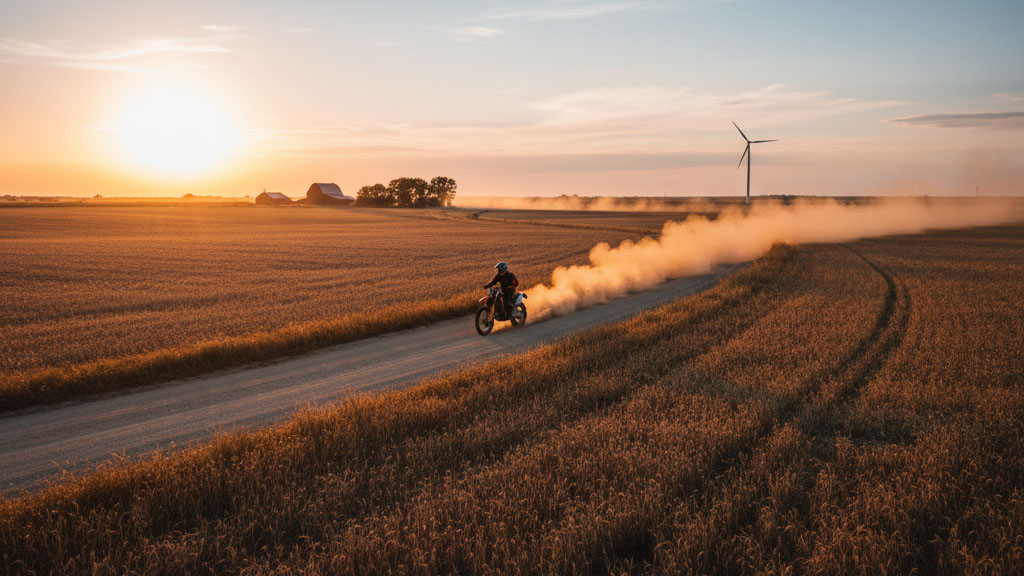Off-Road Use: Registration Requirements
In Kansas, dirt bikes used exclusively off-road are not required to be registered with the Kansas Department of Revenue. However, to ride on designated off-highway vehicle (OHV) trails, riders must obtain an OHV permit from the Kansas Department of Wildlife and Parks (KDWP).
OHV Permit Details:
- Required for Non-Licensed Vehicles: All non-licensed vehicles, including dirt bikes, ATVs, and side-by-sides, must have an OHV permit to operate on designated trails.
- Designated Riding Areas: Permits are valid for specific OHV areas such as:
- Kansas City Area:
- Wyandotte County Lake Park OHV Area
- Wyandotte County Lake Park OHV Area
- Central Kansas:
- Milford State Park OHV Area
- Milford State Park OHV Area
- Western Kansas:
- Cedar Bluff State Park OHV Area
- Cedar Bluff State Park OHV Area
- Kansas City Area:
Helmet and Eye Protection:
- Under 18: Operators and passengers under 18 are required to wear a DOT-approved helmet when operating or riding on a motorcycle.
- All Riders: Eye protection is recommended for all riders, regardless of age.
Age Restrictions:
- Under 16: Individuals under 16 years of age are prohibited from operating a motorcycle or motor-driven cycle on public roads in Kansas.
Operation on Public Roads:
- Operating dirt bikes on public streets, roads, or highways is prohibited unless the bike has been modified to meet street-legal requirements and is properly registered and insured.
Lighting Requirements:
- If operating during low-light conditions, the dirt bike must be equipped with a functioning headlamp and taillamp.

Street Use: Converting a Dirt Bike to Street-Legal
Converting a dirt bike to be street-legal in Kansas is challenging due to state regulations. Kansas does not allow the registration of off-road motorcycles for street use if the title or Vehicle Identification Number (VIN) designates them as off-road only.
Alternative Registration Methods:
Some riders explore registering their dirt bikes in states with more lenient laws, such as South Dakota or Vermont, and then transferring the registration to Kansas. However, this process may involve additional steps and fees, and success is not guaranteed.
Required Equipment for Street-Legal Conversion (if possible):
If eligible for registration, the following equipment is typically required:
- DOT-approved headlight with high and low beams.
- Taillight with brake light function.
- Rearview mirrors (one on each side).
- Turn signals (front and rear).
- Horn audible from at least 200 feet.
- Speedometer and odometer.
- DOT-approved tires.
- Muffler to comply with noise regulations.
- Chain guard.
Title and Registration:
- Obtain a title from the Kansas Department of Revenue.
- Register the bike with the Kansas Department of Revenue.
- Submit the necessary forms and documentation to the Kansas Department of Revenue.
Inspection:
- Have the bike inspected by a licensed inspection station to ensure it meets all safety and emissions standards.
Insurance:
- Secure liability insurance for the bike.
License Plate:
- Affix a valid Kansas license plate to the bike in a visible and unobstructed manner.
Where You Can Ride
Off-Road:
- Private Property: Riding on private property is permitted with the landowner’s consent.
- Public Lands: Riding on public lands is allowed only in designated areas and trails. Kansas has several OHV trails and parks where off-road riding is permitted.
On-Road:
- Permitted Roads: Operation of off-road motorcycles on public roads is generally prohibited unless the bike has been converted to meet street-legal requirements and is properly registered and insured.
- Crossing Roads: Off-road dirt bikes may cross public roads at a 90-degree angle during daylight hours, provided they come to a complete stop and yield to oncoming traffic.

Rider Requirements
- License: A valid driver’s license with a motorcycle endorsement is required to operate a street-legal dirt bike on public roads.
- Helmet Use: Riders under 18 must wear a DOT-approved helmet; helmet use is recommended for all riders.
- Insurance: Liability insurance is mandatory for all street-legal vehicles in Kansas, including dirt bikes.
Penalties for Non-Compliance
Failure to adhere to Kansas’s dirt bike laws can result in:
- Fines: Monetary penalties for unregistered or improperly equipped vehicles.
- Impoundment: Unauthorized vehicles may be impounded by law enforcement.
- License Suspension: Operating without a valid license or insurance can lead to suspension of driving privileges.
Relevant Kansas Laws and Agencies
- Kansas Department of Revenue: Handles vehicle titling, registration, and licensing.
- Kansas Department of Wildlife and Parks (KDWP): Manages public lands and designated OHV trails.
- Kansas Statutes Chapter 8: Outlines motor vehicle laws, including those pertaining to dirt bikes and off-road vehicles.
Start your street-legal process today with Dirt Legal.



